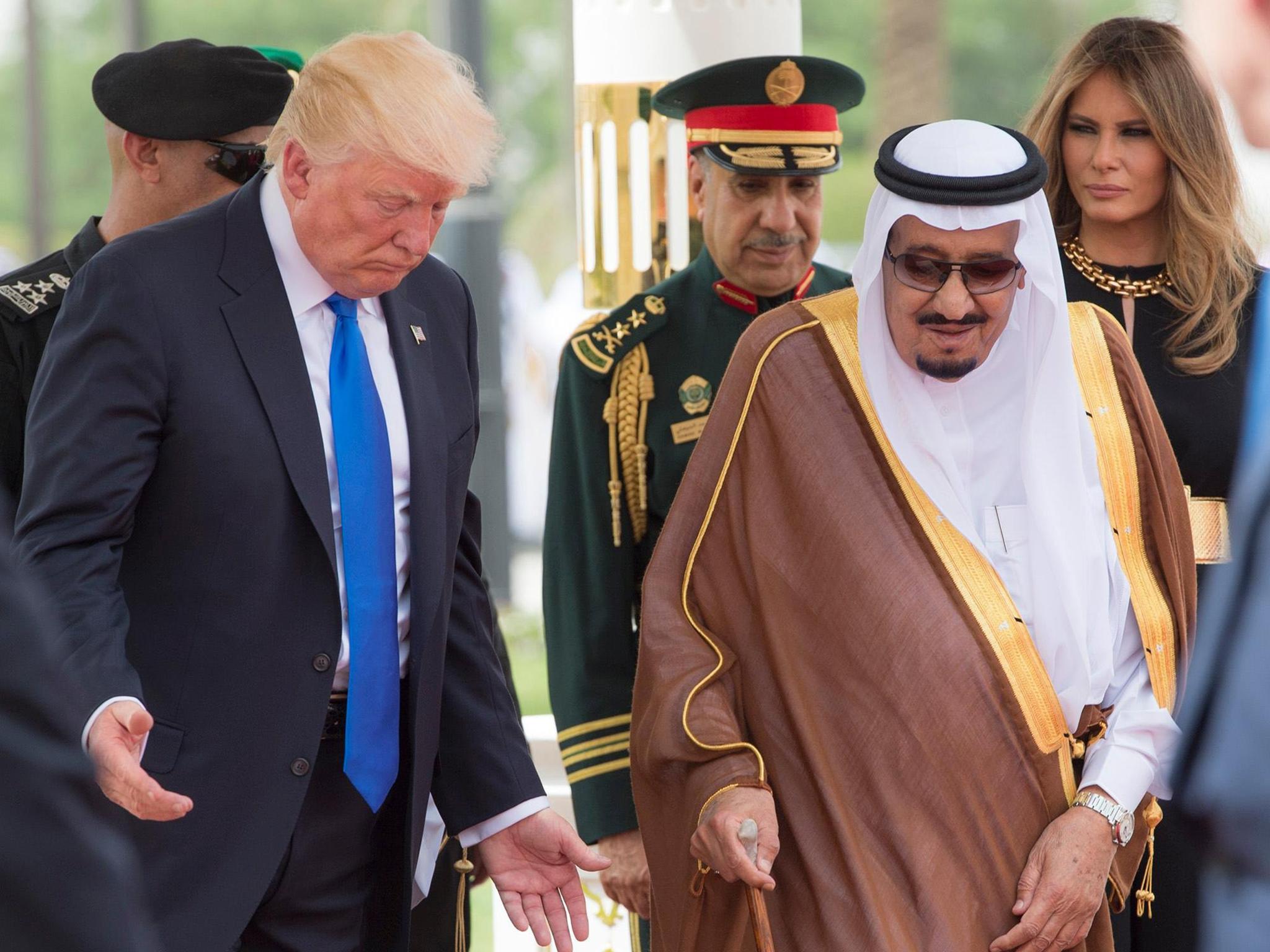The only real way to stop atrocities like the Manchester attack is to end the wars which allow extremism to grow
To end these wars, there needs to be political compromise between main players like Iran and Saudi Arabia, and Donald Trump's belligerent rhetoric this week makes this almost impossible to achieve


Your support helps us to tell the story
From reproductive rights to climate change to Big Tech, The Independent is on the ground when the story is developing. Whether it's investigating the financials of Elon Musk's pro-Trump PAC or producing our latest documentary, 'The A Word', which shines a light on the American women fighting for reproductive rights, we know how important it is to parse out the facts from the messaging.
At such a critical moment in US history, we need reporters on the ground. Your donation allows us to keep sending journalists to speak to both sides of the story.
The Independent is trusted by Americans across the entire political spectrum. And unlike many other quality news outlets, we choose not to lock Americans out of our reporting and analysis with paywalls. We believe quality journalism should be available to everyone, paid for by those who can afford it.
Your support makes all the difference.President Trump leaves the Middle East today, having done his bit to make the region even more divided and mired in conflict than it was before.
At the same moment that Donald Trump was condemning the suicide bomber in Manchester as “an evil loser in life”, he was adding to the chaos in which al-Qaeda and Isis have taken root and flourished.
It may be a long distance between the massacre in Manchester and the wars in the Middle East, but the connection is there.
He blamed “terrorism” almost exclusively on Iran and, by implication, on the Shia minority in the region, while al-Qaeda notoriously developed in the Sunni heartlands and its beliefs and practises primarily stem from Wahhabism, the sectarian and regressive variant of Islam prevalent in Saudi Arabia.
It flies in the face of all known facts to link the wave of terrorist atrocities since 9/11 on the Shia, who have most usually been its target.
This toxic historical myth-making does not deter Trump. “From Lebanon to Iraq to Yemen, Iran funds, arms and trains terrorists, militias and other extremist groups that spread destruction and chaos across the region,” he told an assembly of 55 Sunni leaders in Riyadh on 21 May.
In Israel, he informed Prime Minister Benjamin Netanyahu that President Obama’s nuclear deal with Iran in 2015 is “a terrible, terrible thing... we gave them a lifeline”.
By furiously attacking Iran, Trump will encourage Saudi Arabia and Gulf monarchs to escalate their proxy wars throughout the central core of the Middle East. It will encourage Iran to take precautions and assume that a long-term understanding with the US and the Sunni states is becoming less and less feasible.
There are already some signs that Trump’s endorsement of Sunni states, however repressive, is leading to an escalation of hostilities between Sunni and Shia.
In Bahrain, where a Sunni minority rules a Shia majority, the security forces attacked the Shia village of Diraz today. It is home to the island’s leading Shia cleric Sheikh Isa Qassim, who has just received a one-year suspended sentence for financing extremism.
One man in the village is reported to have been killed as the police moved in, using armoured vehicles and firing shotguns and tear gas canisters.
President Obama had frosty relations with the Bahraini rulers because of the mass incarceration of protesters and use of torture when the security forces crushed democratic protests in 2011.
Trump backed away from past policy when he met Bahraini King Hamad in Riyadh at the weekend, saying: “Our countries have a wonderful relationship together, but there has been a little strain, but there won’t be strain with this administration.”
The bombing in Manchester – and atrocities attributed to Isis influence in Paris, Brussels, Nice and Berlin – are similar to even worse slaughter of tens of thousands in Iraq and Syria. These get limited attention in the Western media, but they continually deepen the sectarian war in the Middle East.
The only feasible way to eliminate organisations capable of carrying out these attacks is to end the seven wars – Afghanistan, Iraq, Syria, Yemen, Libya, Somalia and north east Nigeria – that cross-infect each other and produce the anarchic conditions in which Isis and al-Qaeda and their clones can grow.
But to end these wars, there needs to be political compromise between main players like Iran and Saudi Arabia and Trump’s belligerent rhetoric makes this almost impossible to achieve.
Of course, the degree to which his bombast should be taken seriously is always uncertain and his declared policies change by the day.
On his return to the US, his attention is going to be fully focused on his own political survival, not leaving much time for new departures, good or bad, in the Middle East and elsewhere. His administration is certainly wounded, but that has not stopped doing as much harm as he could in the Middle East in a short space of time.
Join our commenting forum
Join thought-provoking conversations, follow other Independent readers and see their replies
0Comments